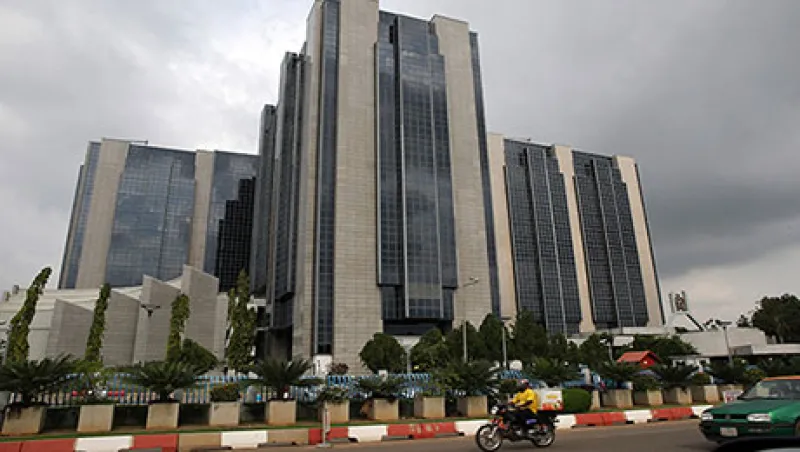International Monetary Fund officials remain optimistic about sub-Saharan Africa’s economies, despite average growth that has slowed to a 15-year low amid slumping commodity prices and signs of an economic unraveling in regional powerhouse Nigeria.
“The narrative of Africa rising is not over,” IMF deputy managing director Mitsuhiro Furusawa told a panel at the Fund’s spring meeting in Washington this past weekend. “We are sure that the region’s future is still bright.”
After a decade of renaissance that spurred talk of Africa succeeding East Asia as the world’s economic tiger, sub-Sahara’s average growth will slide to 3 percent this year, barely outpacing population expansion of 2 percent, the IMF forecasts. Commodity-dependent nations such as Angola, Nigeria and Zambia are grappling with plunging currencies and gaping budget gaps and thus rushing back to international institutions for financial assistance.
Yet commodity-importing neighbors, including Côte d’Ivoire, Kenya and Senegal, are reaping the benefits of lower prices, Furusawa pointed out. “We have eight countries in the region that exceeded 5 percent growth,” he said. “The drivers of an improved business environment combined with favorable demographics are still intact.”
Hard times, meanwhile, may necessitate vital reforms in exporting nations that are suffering, Furusawa said. Nigerian Finance minister Kemi Adeosun, who also spoke at the panel, gave a spirited explanation of how her government is not letting the crisis go to waste. A key to Nigeria’s current financial instability is that oil receipts account for 13 percent of gross domestic product but 70 percent of government revenue. “We have begun to think about what happens to the other 87 percent of our economy,” said Adeosun, a London-born accountant who was appointed last November by newly elected President Muhammadu Buhari. The Nigerian state collects just 6 percent of GDP in taxes, according to the IMF. That compares with 16 percent for Rwanda, which the Fund holds up as an African model, and 18 percent for India.
Nonoil income is largely siphoned off by quasi-independent state companies that control the country’s ports, airports and other lucrative chokepoints, Adeosun discovered. The Nigerian government has begun “hand-to-hand combat” to recapture those flows for the state treasury, she said. Adeosun is simultaneously attacking what the administration has called “indiscipline,” which squanders too much of existing revenue on civil service salaries and perks — leaving next to nothing for investment. “Last year we had only 10 percent of our budget for capital expenditure,” she said. “This year we hope to reach 30 percent.” Her ministry is also cracking down on corporate tax evaders, forcing more than 300 companies to pay value-added tax over the past few months, she said. “Our rate of VAT compliance is about 12 percent,” she said. “There is a lot of low-hanging fruit.”
At the same time, however, Adeosun ducked the issue that is wreaking the most immediate economic havoc in Nigeria: a decision to leave the national currency, the naira, officially pegged to the dollar and control access to hard currency. This has roiled corporate finances and spurred a black market that trades naira at discounts of some 40 percent. The Finance minister said such matters are determined by the central bank, and she voiced impatience with investors’ concern about the resulting chaos. “For the first time, Nigeria has an administration that is committed to the fight against corruption, and now everyone is only concerned about monetary policy,” she said.
Ministers from less financially turbulent African nations than Nigeria pledged that a global macroeconomic chill would give them fresh impetus to reform. Rwandan Finance and Economic Planning minister Claver Gatete said at the weekend panel that he is focused on financial sector development, using mobile technology to draw the population’s cash resources out from under the mattresses and into the banks, and regional integration with Uganda and other East African neighbors. “We are working intensively on reducing border obstructions and eliminating cell phone roaming charges,” he told the IMF audience. “Our aim is to harmonize growing economies from Ethiopia to Tanzania.”
Kenya, which is expected to maintain growth above 6 percent this year, is pressing forward with measures to break up market cartels, said Francis Kariuki, director-general of Kenya’s competition authority. Having battled monopolies in the provision of essential foodstuffs such as maize and sugar, the Nairobi authorities have moved on to services such as telecommunications and banking, he said. Kariuki’s agency was cited in a World Bank report for beating back a price-fixing scheme last year among the country’s private doctors and hospitals, saving consumers $1.7 million annually.
A steady stream of positive steps like this one creates momentum for sub-Saharan Africa that should outlast the current commodities-driven turbulence, said Arvind Subramanian, a former IMF official who is now chief economic adviser to the government of India. “We have seen underlying improvement in governance taking place for the past ten to 12 years,” he said. “The view is very upbeat.”
Get more on emerging markets.






